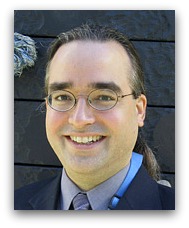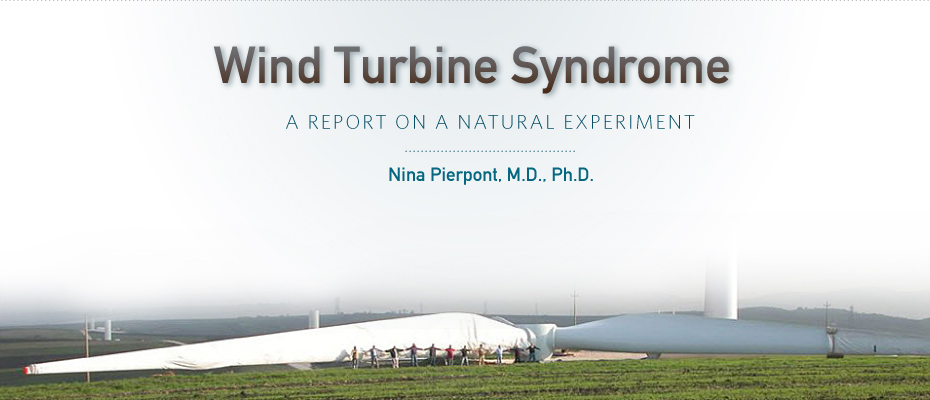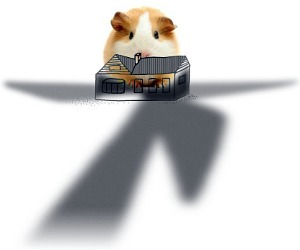Health policy expert hammers wind energy junk science
Jul 19, 2011
Editor’s note: Epidemiologist, Dr. Carl V. Phillips, has weighed in on Big Wind’s junk science approach to Wind Turbine Syndrome, shattering the credibility of the AWEA/CanWEA report, the Australian National Health & Medical Research Council’s “Rapid Review” of Wind Turbine Syndrome—and a host of other (palpably absurd) rebuttals by wind industry hirelings and shills.
The passages, below, written by Dr. Phillips and taken from his website, EP-ology, give you a sense of his argument and evidence.
For a much fuller analysis of the validity of the epidemiologic evidence for Wind Turbine Syndrome, we urge you to read a draft of his forthcoming, peer-reviewed article,
·
Carl V. Phillips, “Properly interpreting the epidemiologic evidence about the health effects of industrial wind turbines on nearby residents,” Bulletin of Science, Technology, and Society, vol. 31, no. 4 (August 2011), pp. 303-315.
·
Dr. Phillips holds a PhD degree in Public Policy from Harvard University (1995). (Not just public policy, but public health policy.) He did a two-year post-doctoral fellowship in Health Policy Research as a Robert Wood Johnson Foundation Scholar at the University of Michigan (1995-97), he has been a professor of Environmental & Occupational Health at the University of Minnesota (1997-2000), then Director for the Center for Philosophy, Health, and Policy Sciences, Inc. (2003-05), a professor at the Center for Clinical Research and Evidence Based Medicine at the School of Public Health, University of Texas Health Science Center (Houston, Texas), 2001-05, and Associate Professor in the Dept. of Public Health Sciences, University of Alberta, Canada (2005-09). Currently he is Director and Chief Scientist for TobaccoHarmReduction.org.
His publications are voluminous and his academic honors both numerous and of the highest distinction. Click here for his full curriculum vitae.

Carl V. Phillips, PhD
A final note. Dr. Phillips has been an expert witness in a number of court cases and government hearings on the epidemiological evidence for Wind Turbine Syndrome (WTS). WTS.com urges you to contact him, or have your attorney contact him, if you are suffering from WTS and you’re ready to sue the pants off Big Wind. Or if your community needs an expert epidemiologist to testify before a government agency. (Tell your attorney that courts recognize Dr. Phillips as an “expert in epidemiology and evidence-based policy making.”)
·
Dr. Carl V. Phillips
cvphilo@gmail.com
(651) 503-6746 cell
ep-ology.blogspot.com
tobaccoharmreduction.org
“Interpreting health science evidence: The case of wind turbines”
·
—Carl V. Phillips, PhD (5/22/11)
Trying to draw scientific conclusions requires reviewing all of the evidence, whatever form it might take. This is true of health science, though you might never know it if you just observed the way many ostensible scientists behave in that area. There are activists and paid hacks who pretend to be doing science, but are just looking for sciency-sounding claims to support their goals.
But even apart from that, the majority of those writing in the field are basically lab technicians, not scientists: They know how to carry out some specific tasks and interpret the results, but really have no idea what constitutes good scientific inference.
The big picture is that there is remarkably little supply of or demand for (among those who control the market) good health science. One specific implication is the problem for those trying to communicate the health effects of wind turbines on nearby residents and have that considered in policy making.
There is quite a remarkable collection of information, but most of those commenting on it simply do not understand it (to say nothing of those who are paid to intentionally denigrate the evidence) (emphasis added).
Quite a good story by Don Butler on the topic ran in the Ottawa Citizen yesterday—probably the best I have seen on the topic. It covered points that are usually not talked about in a useful and intelligent manner. Still, it had the obligatory statement,
… the health impact of turbines has yet to be conclusively demonstrated. In a May 2010 report, Ontario’s chief medical officer of health, Dr. Arlene King, found that scientific evidence to date “does not demonstrate a direct causal link between wind turbine noise and adverse health effects.”
That King report was pretty much a joke, ignoring most of the evidence. It provides a great example of how medics are typically not very good a evaluating scientific evidence (“medical officers of health” are an odd Canadian institution that puts physicians rather than public health science experts in charge of the science side public health policy—not much different from what happens to public health policy-making elsewhere, frankly, but completely institutionalized). Of course, being a physician does not prevent someone from understanding health science, it just does not promise it. Butler’s article followed immediately with another MOH (my only fault with Butler was not finding some scientists to quote rather than just government medics, but at least he found one who got the right answer):
But Dr. Hazel Lynn, medical officer of health for the Grey Bruce Health Unit, reached a different conclusion in a report in January. It’s clear, she found, that many people have been “dramatically impacted by the noise and proximity of wind farms. To dismiss all these people as eccentric, unusual or hyper-sensitive social outliers does a disservice to constructive public discourse.”
She is quite right. It also does a disservice to science. I will take this opportunity to post my paper, “Properly Interpreting the Epidemiologic Evidence About the Health Effects of Industrial Wind Turbines on Nearby Residents” (PDF). Anyone interested in the topic or sufficiently interested in my analysis of health science might find the whole thing interesting. (Note: It is not as long as it looks from the page count. There is a long appendix.) I mentioned a few days ago, when I criticized one lame dismissal of the wind turbine evidence, that I would write more on this topic. This paper offers some observations that are generalizable to interpreting health science that I will draw out on near-future slow health news days.
If you want a shorter read, I posted the abstract and final paragraph of an earlier version (which is almost the same) a few months ago (March 11, 2011):
I just finished up a paper about the epistemology and ethics of interpreting the epidemiologic evidence about the health effects of wind turbines. (Wow, that is a mouthful.) Here are the abstract and the final paragraph. The most Unhealthful-News-relevant of my points for the day can be found in the latter. (Anyone who wants to offer comments on the working paper version of this, please drop me a note. I am not going to post this version, and would like to limit circulation to those who might want to offer comments, but if you are one of them, please ask for a copy.)
Abstract: There is overwhelming evidence that wind turbines cause serious health problems in nearby residents, usually stress-disorder type diseases, at a nontrivial rate.
The bulk of the evidence takes the form of what are probably thousands of adverse event reports. There is also a small amount of systematically-gathered data.
The adverse event reports provide compelling evidence of the seriousness of the problems and of causation in this case because of their volume, the ease of observing exposure and outcome incidence, and case-crossover data.
Proponents of turbines have sought to deny these problems by making a collection of contradictory claims, including that the evidence does not “count,” the outcomes are not “real” diseases, the outcomes are the victims’ own fault, and that acoustical models cannot explain why there are health problems so the problems must not exist.
These claims appear to have swayed many non-expert observers, though they are easily debunked. Moreover, the last of them, coupled with other information, means that we do not know what, other than kilometers of distance, could sufficiently mitigate the effects.
There has been no policy analysis that justifies imposing these effects on local residents. The attempts to deny the evidence cannot be seen as honest scientific disagreement, and represent either gross incompetence or intentional bias (emphasis added).
This is not a case where dispassionate analysis and charitable interpretations of people’s actions are appropriate. The attempts to deny the evidence of health problems cannot be seen as honest disagreements about the weight of the evidence. Honest disagreements about scientific points are always possible. But when proponents of one side of the argument consistently try to deny the very existence of contrary evidence, make contradictory claims, appeal to nonsensical and non-existent rules, treat mistaken predictions as if they were evidence of actual outcomes, play semantic games to denigrate the reported outcomes, and blame the victims, then they are not being honest, scientific, or moral. They are preventing the creation of optimal public policy and damaging the credibility of science as a tool for informing policy.
Moreover, assuming their lack of plausible arguments really does mean that there are no defensible arguments to be made on that side of the issue, then their persistence in making implausible arguments is directly responsible for hurting lots of people.


Comment by mtumba djibouti on 07/20/2011 at 9:11 am
Let the lawsuits begin! It continues to boggle the mind why we have not begun to see class action suits against this lying industry.
Comment by Annie Hart Cool (Falmouth, Mass.) on 07/20/2011 at 1:24 pm
Is it really that Bad? You ask about life under a Wind Turbine????
by Annie Hart Cool on Tuesday, July 19, 2011 Falmouth MA
Is it really that bad? This is a question that gets me riled. I know it’s a question generated out of concern sometimes, curiosity other times but it sounds like judgment to me. My listening hears “c’mon it can’t be that bad? Suck it up, take one for the team”.
There is often such disbelief among the questioners that the leadership of Falmouth could make such a colossal mistake. Surely living under a wind turbine and sleeping 4 out of 7 nights a week can’t be that bad? Taxpayers generally want to believe their tax dollars are in safe capable hands. As citizens we want to believe the people we elect have our backs when it comes to big decisions that effect our peaceful enjoyment of our homes.
I get it! I get that if you who ask “Is it really that bad?” and you believe me and my neighbors, it means you have to take a look at Falmouth’s powers that be. You have to question authority and your belief in the folks we elected would be in question.
I ask you, really? I mean really? After the high school debacle… Who was checking the checker there? And need I bring up sewer issue? Heavens, what about water quality or the dump? Recently a woman I work with called the dump and asked how much it cost to dump some household items…the man on the phone said “take it to Bourne, it’s free.” Now there is a statement! Even paid town employees see the folly of town management.
Yet with all these management faux pas, taxpayers still pull the wool over their eyes. Still we who live under the wind turbines are asked to hush up about the hell we are in…to get over it…to not rock the political boat.
Is it really that bad? It’s sleeping in the basement bad.
Is it really that bad? It’s not wanting to come home bad.
Is it really that bad? It’s not able to use the decks or garden bad.
Is it really that bad? It’s headaches daily bad.
Is it really that bad? It’s dead bats on our deck bad.
Is it really that bad? It’s lost property value bad.
This wind turbine boat is worth rocking because, if we don’t, then what will Falmouth’s town management team do next with our town taxes? What sneaky loophole will be found to hurt your neighborhood? We need to rock this boat. We aren’t anti wind but pro-neighborhood.
We are the “collateral damage” of greed gone bad. Maybe our boat rocking will save you from having to answer the question, IS IT REALLY THAT BAD?
Comment by GS on 07/20/2011 at 7:07 pm
Very exciting development! Thanks so much for continuing to make these posts. I read every one and forward many. You and Nina are making terrific strides in fighting this menace.
The industry has for decades sucked off of the public teat and practiced unending deceit. Perhaps its days are finally numbered.
For the life of me I can’t understand why we aren’t seeing class action suits. Maybe this will be the tipping point.
Where are the lawyers?!?
Comment by Marc Laurie (North Dakota) on 08/15/2011 at 10:36 pm
Thank you for continued work in this area.
09/01/11, Burleigh County Commissioners in Bismarck, North Dakota are about to consider a special use permit for NextEra to add 33 more turbines, all in Crofte Township. Information was presented to the Burleigh Planning Commission that the majority of the residents in Crofte Township are in opposition to any turbines in the Township.
The Planning Commission refused to submit to the will of the majority and ruled in favor of the few, to include landowners who do not live in the township, and in favor of NextEra.
Where did democracy go?
Editor’s reply: Here’s our answer:

.
Comment by Itasca Small on 08/30/2011 at 6:30 pm
The lawsuits are long in coming because the developers deliberately attack the poorest counties, knowing that we can’t afford a real attorney – if we can find one. A well-known attorney who has sued against the wind wanted $50,000 just to get started. They are out there, but when you start to learn the state of our legal system it becomes clear why we are in the state in which we find our nation.
Another reason is that many people don’t want to make waves and invite retribution – fearing the loss of everything because they are defeated from the start. We can’t just pick up and move when our asset is our home and no aware buyer wants to live under the threat of a wind power plant. (I refuse to call them ‘farms!’) One of the goals of this juggernaut is to meet the goals of the UN Agenda 21 Sustainable Development movement by forcing rural residents to move to the suburbs and urban areas. (Of course, there are other serious affects that I will not list here.) If we have to move to an apartment in the middle of a city all the better in their desire to meet that overarching goal. It isn’t about ‘Saving the Planet.’ It’s about controlling the people.
But, I am greatly encouraged by the continuing efforts of Carl, Nina, John Droz, jr., Calvin, and others who are professionals fighting for all of us. Our county has no regard for professionals unless they agree with the pro-wind agenda. We actually have professionals who have valuable input to provide, but we are told that our experience and knowledge mean nothing. They are willfully blind and only prayer and the Spirit of God will help them to be opened to the truth.
We must all pray for and bombard our elected representatives on the state and federal levels to get them re-educated and won-over to the right side so they will stand against the tax subsidies, credits, and grants to the wind industry.
I see definite progress and thank God for it in the face of my inadequacy to do the legal work I thought I should do in this war, as my lifelong Asperger’s ability to think non-linearly and gather, ingest, associate and digest vast amounts of detail to present a logical and forceful argument, has diminished greatly as I live in an area affected by WTs. I have thus been stymied in my efforts to bring a suit as a non-attorney because I am no longer confident that I will do everything correctly to present a cause of action and support my standing to bring it, against the inevitable onslaught that will begin with the motion to dismiss. I have just formed the realization that maybe this has happened to me so that I would be able to let God work through me and not me work on my own abilities. ?
Those are some of the reasons the lawsuits are few and far between. Hopefully, the suit in Colorado will go against the wind and break it all open. And, hopefully, any others that are pending or in-progress will be decided in favor of the truth.
Comment by Todd D. Brown, Esq. on 06/12/2012 at 11:39 am
Similar to an issue I published in my Law Review back in the 90s. A legal alternative here, as well?